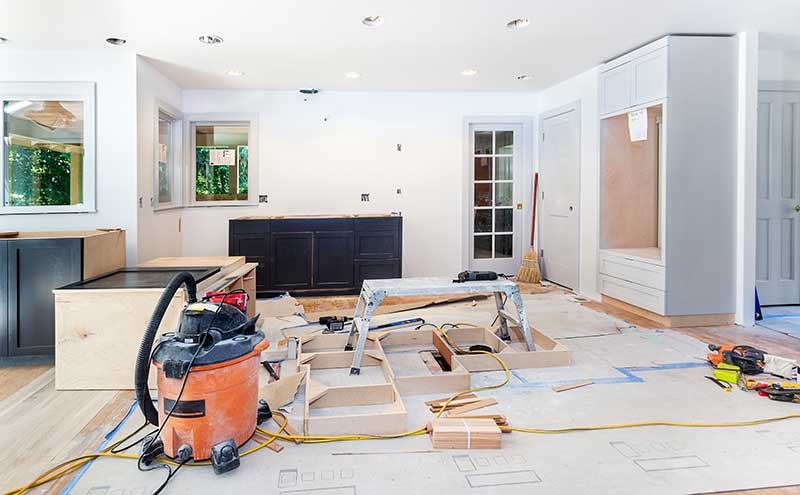Renovating your home is a big task and several steps need to be taken before you can begin. To ensure that your renovation project runs smoothly, you should take the time to plan and understand what needs to be done. Here are some tips to consider before starting a renovation project.
1. Get Professional Advice
Before beginning any renovation work, it is important to get professional advice from an experienced contractor or architect who can guide the process. A professional will know local building regulations and codes that must be met for the project to pass inspection and receive approval. They will also be able to provide estimates for labor costs as well as materials needed for the job. And if you're having trouble finding where to store your belongings while renovating, Epping-based self-storage providers can help you deal with the mess. For example, Box-n-Go Storage provides highly secure storage units for domestic and commercial clients.
2. Create a Budget
A major part of the planning process is creating a budget that outlines all of your expected costs, such as materials, labor, and any additional fees or permits required. Working with a professional can help you get an accurate estimate and plan for potential unexpected costs that may arise during the project. To stay on track with your budget throughout the renovation process, it's important to track spending and have contingencies in place in case something goes wrong. Start with a realistic budget and leave room for adjusting as needed.
3. Understand the Process
Before beginning any renovation project, it is important to understand all of the steps involved to be prepared when unexpected issues arise. Knowing what needs to be done will help you make informed decisions throughout the process, as well as provide a timeline that can be used for planning and tracking progress. It's also beneficial to understand potential disruptions that may occur during the renovation such as noise, dust, and displaced furniture. In some cases, you may need to vacate the premises for some time during the project. If a temporary living situation is needed, a storage unit can provide an ideal solution
4. Prioritize Safety
Safety should always be your number one priority when renovating your home. Make sure that the contractor you hire has experience with the type of work being done and the appropriate licensing and insurance in place. Be sure to advise them of any special instructions or safety concerns before beginning the project.
In addition, it's important to check for asbestos before taking on any demolition projects as it can be hazardous if disturbed. If you’re leaving a bunch of materials on-site, consider installing a locked gate and using a high-quality all-o-matic gate opener. This will prevent theft or a wandering observer from hurting themselves. Taking the necessary precautions will help ensure everyone involved stays safe throughout the entire renovation process. When in doubt, always consult a professional.
5. Focus on Quality
When selecting materials and appliances for your renovation project, it's important to focus on quality over quantity. Investing in higher-quality products will ensure that they last longer and require less maintenance over time. This is especially true when it comes to electrical work and plumbing. You’ll want to find reliable contractors that can do the job right the first time around, as well as provide warranties on their work if something goes wrong down the line. Remember that there is no substitute for quality when it comes to renovation projects.
Materials such as countertops, sinks, and toilets should be top-of-the-line so that they can withstand everyday use. Appliances such as washers, dryers, and refrigerators should also meet energy efficiency standards to help save money in the long run. Taking the time to find quality products will pay off in the end.
6. Choose Your Colors Carefully
When it comes to color choices throughout a renovation project, it is important to choose wisely. Bright colors may initially draw attention, but they can quickly become overwhelming and outdated over time. Instead of going for something bold and flashy, opt for neutral tones like white or gray that are timeless and easy on the eyes. Additionally, incorporating natural elements into your design scheme (like wood or stone) can create a more inviting and relaxing atmosphere. Choose colors that you are comfortable living with for the long term, as changing them, later on, can become costly.
Renovating your home can be a daunting and overwhelming process, but with the right preparation and planning, it can also be an exciting and rewarding experience. By following these tips and consulting professionals along the way, you can make sure that your renovation projects are successful and completed on time and on budget. Good luck!

